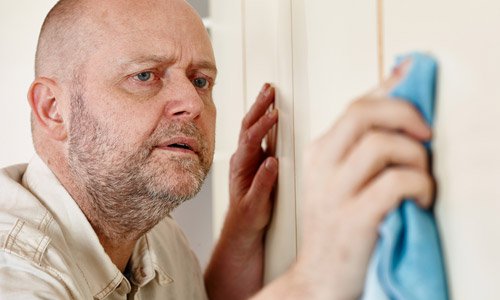
Treatment for OCD
The treatment for OCD with the most research supporting its effectiveness is cognitive-behavioral therapy. Cognitive-behavioral therapy for obsessive-compulsive disorder involves two components: 1) exposure and response prevention, and 2) cognitive therapy.
Exposure and response prevention for OCD
Exposure and response prevention involves repeated examination to the source of your obsession. Then you are need to refrain from the compulsive behavior you’d usually perform, this will help reduce your anxiety.
For example, if you are a compulsive hand washer, you might be asked to touch the door handle in a public restroom and then be prevented from washing up. As you sit with the anxiety, the urge to wash your hands will gradually begin diminish on its own. In this way, you learn that you don’t need the ritual to get rid of your anxiety, You have exercised control over your obsessive thoughts and compulsive behaviors.
Studies show that exposure and response prevention does actually “retrain” the brain, permanently reducing the occurrence of OCD symptoms.
Helping a loved one with OCD
The cognitive therapy component for obsessive-compulsive disorder focuses on the catastrophic thoughts and exaggerated sense of responsibility you feel. A big part of cognitive therapy for OCD is teaching you healthy and effective ways of responding to obsessive thoughts, without returning to compulsive behavior.
Other OCD treatments
In addition to cognitive-behavioral therapy, the following treatments are also used for OCD:
Medication – Antidepressants are sometimes used in conjunction with therapy for the treatment of obsessive-compulsive disorder. However, be aware that medication alone is rarely effective in relieving the symptoms of OCD.
Family Therapy – Because OCD will cause problems for family life and social adjustment, family therapy is often advised. Family therapy promotes understanding of the disorder and can help reduce family conflicts. It can also motivate family members and teach them how to help the sufferer.
Group Therapy – Group therapy is another helpful obsessive-compulsive disorder treatment. Through interaction with fellow OCD sufferers, group therapy provides support, knowledge and encouragement which decreases feelings of isolation.